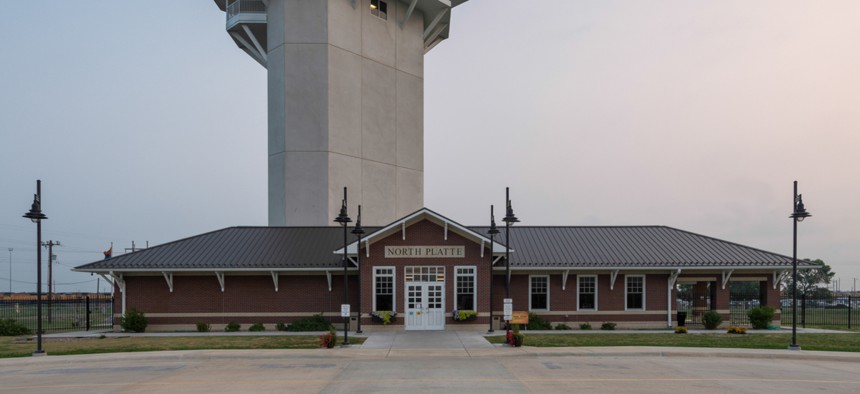This Small Nebraska City Uses Cash Incentives to Attract Skilled Workers

North Platte, Nebraska Shutterstock
To be eligible for the matching grant program, employers must be recruiting for “quality jobs,” paying at or above the state’s median wage.
In North Platte, a southwestern Nebraska city of about 24,000, unemployment typically hovers around 3 percent. That’s good news for residents but a mixed bag for the city’s employers, who routinely struggle to find qualified, skilled workers to fill open positions.
So last year, the North Platte Area Chamber & Development Corp. decided to sweeten the pot. In March 2017, the chamber debuted WORKNP, a relocation incentive program designed to entice new workers to move to the area.
The program offers a matching grant to any relocation incentive offered by eligible employers, up to a max of $5,000—so if a company offers a new hire $5,000, the chamber will kick in an additional $5,000, bringing the total relocation bonus to $10,000.
The money for the program comes from the city’s Quality Growth Fund, containing revenue from a portion of sales tax earmarked for economic development, including employee recruitment. The matching funds from the chamber must be used for relocation expenses, which can include moving costs, rent and even ongoing tuition.
To be eligible for the program, employers must be recruiting for “quality jobs,” paying at or above the state’s median wage.
“We selected a minimum of $20 per hour, meaning the position has to pay $20 per hour by the end of a three-year period,” Megan McGown, the chamber’s vice-president of economic development and marketing, told Route Fifty in an interview. “It’s available across all sectors, so the retail and restaurant industries would be just as eligible for this as, say, a physician.”
The labor shortage is not unique to North Platte. A January 2017 study found that 73 percent of businesses had a difficult time finding qualified workers, and 55 percent identified worker shortages as a bigger concern than both federal regulations and low infrastructure investment. Relocation incentives don’t address the overall shortage, but research suggests they can be useful in helping to attract new talent to an area.
Cities across the country have tried similar tactics. In Marne, Iowa, newcomers can receive a free plot of land to build a home. Several communities in Michigan offer student-loan scholarships to certain graduates who return to start their careers. But straight cash incentives are less common, McGown said.
“When we were crafting our program, I could not find another one like it,” she said. “There are a number of communities that do creative things, but we hadn’t seen one like this.”
Thus far, the North Platte Area Chamber & Development has bestowed just two WORKNP grants. Several others are in the works, but recruitment can be a long process, and because each employer is limited to two grants, deciding how and when to advertise the incentive can be tricky, McGown said.
“Some of our employers who have the highest hiring needs might have 25 jobs to fill that are all the same position,” she said. “We only allow two grants per employer, so it may be cumbersome for them to say, ‘We’ve got to structure the rest of our hires around this one-time bonus.’”
But the money has been influential for the employees who have received it. Audrey Bellew, a North Platte native, returned to her hometown to start her legal career after graduating from law school at the University of Nebraska in Lincoln. She’d always hoped to come home, she said, but didn’t think she would have the opportunity to do so early in her career.
“I didn’t know if that would be a possibility with the job market, just because it’s a smaller town,” Bellew told Route Fifty in an interview.
Bellew’s law firm incorporated the WORKNP grant as part of her job offer package. It was the first time she’d seen a municipality offer any type of financial incentive to potential employees.
“This was a first for me,” she said. “I know that headhunters look for people that they want and are willing to offer money, but I’ve never heard of a community doing it to get people back in.”
The money, she said, made it possible for her to return to North Platte immediately and to spend the summer studying for the bar exam without worrying about income.
“It made it accessible for me right away rather than having to wait,” she said. “I also paid for moving expenses, the bar exam, and part of my student loans. It’s a good incentive and I think it’s a great way to bring people back into the community.”
Kate Elizabeth Queram is a Staff Correspondent for Government Executive’s Route Fifty and is based in Washington, D.C.
NEXT STORY: Cities Need Equitable Workforce Pipelines





